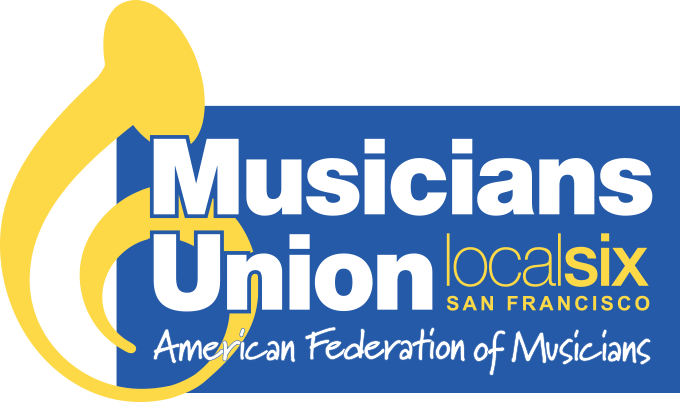by John Tenney
“I’ve been so lucky all my life,” Louise Clow says while relaxing in her San Francisco apartment, “things just always seemed to happen. “Maybe so, but by the time she retired from the Los Angeles/San Francisco Civic Light Operas in 1985, she had played harp in the pits for 35 years, and before that had logged 25 more years of professional work, beginning in her early teens. A little bit of luck never hurt, but Louise has worked hard all her life.
Her career had been so wide-ranging that when the Los Angeles Civic Light Opera called her in l950 for her first show, she felt as if she were finally settling down. “I really enjoyed the shows, knowing what you had to play and having eight shows a week. With the studios you had new music all the time and it was a nerve-wracking thing.” Beginning with her very first show in Los Angeles, the conductor wanted her to travel to San Francisco with it. “At that time, there really were no good professional harpists here except the girls in the Symphony, and they weren’t available. So for all those years, I used to commute between the two cities.”
She brought a wealth of experience to the pits. In the 1940’s, she had played under Max Steiner, Al Newman and others in the studio orchestras, made records with Frank Sinatra, toured with Ray Noble, and played a lot of radio shows for performers like Jack Benny, Bing Crosby, Phil Harris and her favorite, Edgar Bergen. When Harpo Marx — who played largely by ear — wanted some exposure to the classical repertoire, she obliged him with a few lessons. Once, she demonstrated the harp to a wide-eyed three-year-old Candice Bergen while father Edgar told her how hard it was to play so that she wouldn’t ask for one. Louise did all this in addition to playing second harp for the Los Angeles Philharmonic. One summer season, she played first harp at the Hollywood Bowl under Leopold Stokowski. “That was pressure,” she recalls. “The only good thing was that I lost a lot of weight. But you played better than you ever thought you could. He just had that way that was so inspirational.”
Once she began to work in the pits, she began to get plum jobs that again took her on the road. She joined New York’s Local 802 and toured with the original road company of <i>The Sound of Music</i> from 1960 to 1964. When it closed in Minneapolis, she was offered more work in New York. “They said, `Do you want us to send your harp to New York?’ and I said, `No! I want it sent to Los Angeles. I’m going home!’”
She fondly remembers Edwin Lester, head of LACLOA and SFCLOA. Lester knew all the traveling musicians by name, and made sure that they were invited to the elegant dinner parties he gave for road companies. “[The companies] used to call it the Lester Circuit (eight weeks in Los Angeles and seven in San Francisco). Everybody wanted to get on it because they knew they’d get paid.”
Lester was a gentlemen, a rarity in the entertainment business. Far more commonly, musicians could be taken advantage of. Louise has long been aware of frequently substandard working conditions, and still remembers under-the-stage pits, in which stagnant air often made musicians ill, and the Golden Gate Theater’s pit entrance, a ladder-like stairway that wasn’t remodeled until after she retired. Things would have been worse without the union, she feels, and she was a staunch supporter from an early age. During the depths of the Depression, she quit a touring band when it went non-union, preferring to return home to Omaha rather than compromise her principles.
Even with union contracts dominating the major pits today, she has reservations about the present and future state of the business. “I really think I was in the very best era. Now, there’s no work for harpists, really. The synthesizers have completely taken over,” she says. “San Francisco should do something about it. Lloyd Webber said, `I want the real harp sound on this show [<i>Phantom of the Opera</i>],’ so Henry [Fanelli] got it [in New York], and this friend of mine, Toni, played it in LA all the time [four years] it was there. And then it comes here, and they use a synthesizer on it, and that is not fair. They should have something in the contract that demands they use the original orchestration in San Francisco as well as New York and Chicago and Los Angeles.” Other instrumentalists, not only harpists, should heed her words.
Obviously she keeps abreast of the latest trends in the business. At eighty-something, she still attends the regular Friday night post-show get-togethers across the street from the Curran Theatre. It would be easy to live entirely on memories, but she would rather be up to date. There’s plenty to remember: playing at the Irish Village of the 1934 Chicago World’s Fair with Donald O’Connor, or working at the famous Hollywood Canteen during World War II, or enjoying a party with Yul Brynner at the Bel Air Hotel — and being independent throughout. “[Being a woman in the music business] was very good for me…I always had it my own way, and I just loved it!” Said with a twinkle in her eye.
We should all be so fortunate — to have a sixty-year career and be able to sum it up with such upbeat energy. The local pit players all love Louise Clow. It’s easy to see why.
